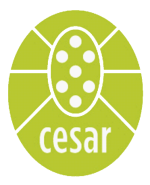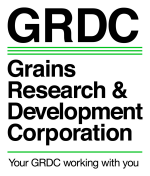Decision Making for Insect Management in Grain Crops workshops were conducted at multiple locations within the Northern and Southern regions during 2013-2015 as part of GRDC project DAQ00179*.
Background
Insecticide resistance, coupled with the regulatory withdrawal of a number of older insecticides, is creating a potential crisis for insect management in grain crops. This is prompting advisers to re-think the sustainability of their strategies of managing insect pests.
These GRDC-funded workshops are targeted at agronomic advisers who seek improved understanding of insects and their management with the view to implement more sustainable insect management practices with their clients. In practice, this will mean an increased use of tactics such as scouting, the use of thresholds, consideration of paddock history and farm planning in relation to pest management, understanding pest ecology, consideration of the role and impact of beneficial insects on pest populations and replacing prophylactic broad spectrum insecticide applications with softer alternatives where possible. The program will assist advisers to develop decision making processes for cost effective integrated insect management.
Workshops were held at:
- Dubbo and Wagga Wagga (March 2013)
- Adelaide and Horsham (July 2013)
- Dalby and Moree (August 2013)
- Wellington, Forbes and Griffith (September 2013)
- Pittsworth and Goondiwindi (February 2014)
- Casino and Grafton (February 2014)
- Kadina, Kapunda, Albury, Bendigo, & Horsham (April 2014)
- Campbell Town, Lake Bolac, & Cummins (September 2014)
- Narromine, Gunnedah, & Warialda (September 2014)
- Moura and Emerald (February 2015)
Workshop map
Zoom in to see where the workshops were held.
- Initial workshop series targeting advisors = gold information symbol (bold)
- Revised workshop series open to growers = gold information symbol (italic)
- Revised series with field day components = purple grain symbol
Key learning areas included:
- Implementing an integrated approach to insect management and the associated decision making process
- Monitoring, record keeping and thresholds
- Integrated pest management tools including cultural control, the conservation of beneficial insects and ‘softer’ or more ‘selective’ insecticide options
- Management of establishment pests and in-crop pests
- Key pests and management strategies for regionally important crops
Participants were given access to a wide range of downloadable and on-line resources including the 212 page iSPY manual (produced by the National Invertebrate Pest Initiative), GRDC Fact sheets, Ute Guides and Backpocket guides, and course notes and PowerPoint presentations.
See the workshop series resources page.
Project team
The project team was drawn from the following organisations, and the project co-funded by these organisations and the GRDC (Project code: DAQ00179).
 |
 |
 |
 |
 |
 |
Clicking on a logo will direct you to their website.

